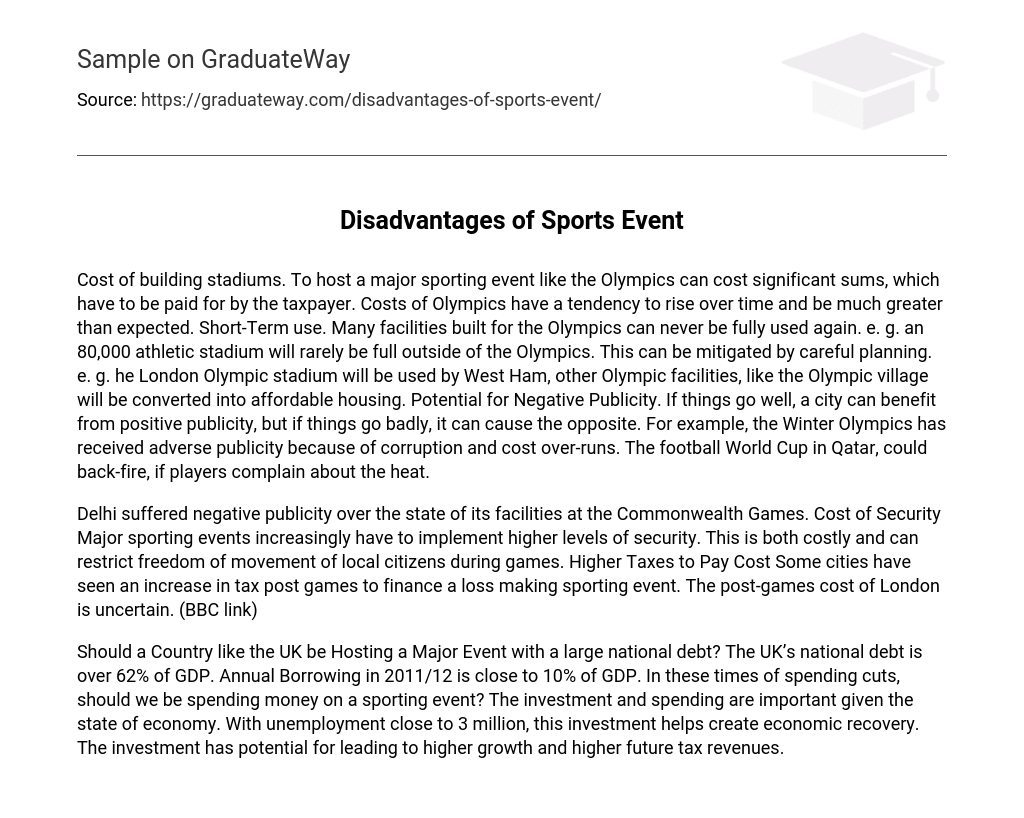Cost of building stadiums. To host a major sporting event like the Olympics can cost significant sums, which have to be paid for by the taxpayer. Costs of Olympics have a tendency to rise over time and be much greater than expected. Short-Term use. Many facilities built for the Olympics can never be fully used again. e. g. an 80,000 athletic stadium will rarely be full outside of the Olympics. This can be mitigated by careful planning. e. g. he London Olympic stadium will be used by West Ham, other Olympic facilities, like the Olympic village will be converted into affordable housing. Potential for Negative Publicity. If things go well, a city can benefit from positive publicity, but if things go badly, it can cause the opposite. For example, the Winter Olympics has received adverse publicity because of corruption and cost over-runs. The football World Cup in Qatar, could back-fire, if players complain about the heat.
Delhi suffered negative publicity over the state of its facilities at the Commonwealth Games. Cost of Security Major sporting events increasingly have to implement higher levels of security. This is both costly and can restrict freedom of movement of local citizens during games. Higher Taxes to Pay Cost Some cities have seen an increase in tax post games to finance a loss making sporting event. The post-games cost of London is uncertain. (BBC link)
Should a Country like the UK be Hosting a Major Event with a large national debt? The UK’s national debt is over 62% of GDP. Annual Borrowing in 2011/12 is close to 10% of GDP. In these times of spending cuts, should we be spending money on a sporting event? The investment and spending are important given the state of economy. With unemployment close to 3 million, this investment helps create economic recovery. The investment has potential for leading to higher growth and higher future tax revenues.





